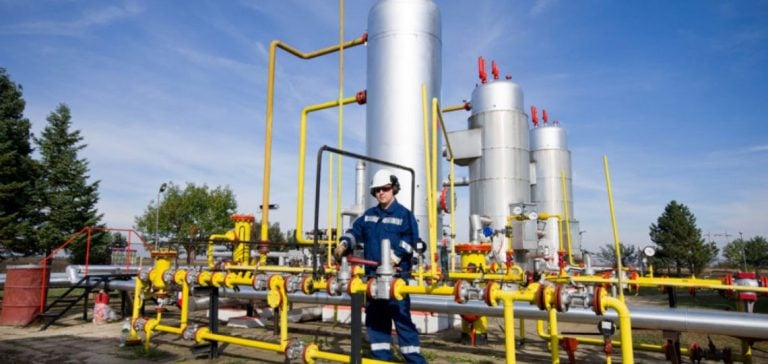The 2024 presidential campaign puts energy policy at the heart of the debate in Pennsylvania, a key state for natural gas producers.
The freeze on new liquefied natural gas (LNG) export permits, decreed in January 2024 by the Biden administration, is a campaign measure aimed at appeasing the Democrat party’s environmentalist base.
However, this decision disrupts a sector where gas production, largely from hydraulic fracturing, generates considerable volumes for the domestic and export markets.
Industry professionals are now looking to Kamala Harris, the Democratic candidate, to clarify her policy on the subject, including the future of the permit freeze.
Harris, who supported a ban on fracking during her 2020 campaign, has since nuanced her position.
While this political flexibility aims to rally a moderate electorate while not alienating environmental groups, it creates considerable uncertainty for players in the energy market, particularly those based in Pennsylvania, such as EQT Corporation and Devon Energy.
Political decisions awaited on LNG
Pennsylvania, rich in shale gas, is one of the driving forces behind national production.
Companies there are exploiting the large reserves in the Marcellus Shale using hydraulic fracturing, a controversial but essential technique for extracting these resources.
The freeze on new LNG export permits, initially intended to be temporary, is causing growing concern among local producers.
This freeze has a direct impact on international expansion prospects, particularly in Europe, which is seeking to diversify its energy supplies following Russia’s invasion of Ukraine.
U.S. LNG exports have exploded in recent years, reaching 356.4 billion cubic feet in June 2024, compared with 109 billion four years earlier, according to the U.S. Energy Information Administration (EIA).
A significant proportion of these exports are destined for European allies such as Germany, Italy and the Netherlands.
However, current uncertainty over Harris’s policies, should she be elected, could slow this growth.
The industry is asking for clarification, particularly as regards the possible lifting of the permit freeze, a key element in maintaining the competitiveness of US exports on international markets.
An industry waiting for political clarity
Toby Rice, President and CEO of EQT Corporation, Pennsylvania’s largest natural gas producer, points out that the impact of these political decisions is already being felt by consumers.
In his view, the situation is paradoxical: at a time when the United States is bursting at the seams with energy resources, energy bills are steadily rising.
He attributes this 35% rise in prices to sustained global demand, exacerbated by uncertainties linked to political decisions.
For Rice and many other industry leaders, it is crucial that the next administration quickly clarifies its position on LNG exports in order to stabilize the market.
The stakes go far beyond US borders.
Global demand for LNG continues to grow, and the U.S. Energy Information Administration predicts that North America’s export capacity will double by the end of the decade, to more than 24 billion cubic feet per day.
While international demand remains strong, natural gas producers need to ensure that infrastructure and regulations are in place to meet this demand without unnecessary restrictions.
In this context, the decisions taken by the Harris administration, if elected, will be decisive for the future of the sector.
The need for infrastructure to support expansion
Industry players see the construction of new export infrastructures, such as an LNG terminal in Philadelphia, as an opportunity to boost the regional economy and strengthen the competitive position of US producers.
Currently, natural gas extracted from the Marcellus Shale has to be transported to the Gulf Coast or to the Cove Point terminal in Maryland for export.
These complex logistics increase costs and reduce profit margins, making it all the more important to invest in local solutions.
The future of the natural gas sector in the United States will therefore largely depend on the direction federal energy policy takes after the 2024 election.
The freeze on LNG export permits and decisions on the regulation of hydraulic fracturing will be closely scrutinized by industry professionals, not just in Pennsylvania, but across the country.
Harris will have to reconcile the economic needs of the energy sector with the expectations of environmentalist voters, which poses a major political challenge just a few weeks before the election.





















